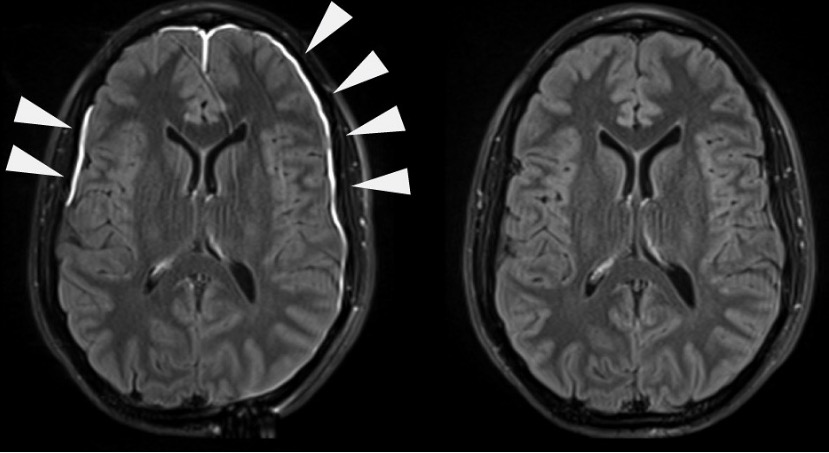Playlist
Show Playlist
Hide Playlist
Viral and Non-bacterial Meningitis
-
Slides CNS Infections Meningitis.pdf
-
Download Lecture Overview
00:01 What about other causes of meningitis, non-bacterial causes? We do see that viruses cause meningitis. 00:07 This is more common in children. 00:08 It's often present during the summer months. 00:11 And we think about certain types of viruses; enteroviruses, arboviruses, and adenoviruses. And you can see some of those specific organisms here. 00:19 We ask about tick exposure. 00:21 We need to think about mosquito bites, particularly in seasons where this could occur and could contribute to a viral transmission. 00:29 The clinical manifestations may vary just slightly from bacterial meningitis, we can see an exanthem, a rash, a viral exanthem, which we see in viral processes more than bacterial, conjunctival hemorrhage pleurodynia, pericardial rub. 00:43 Again, we see signs that the virus is all over the body and causing irritation of other organisms in selected patients. 00:50 We can see increase in LFTs from a mild hepatitis from a viral infection, and often these occur in the viral prodrome prior to presentation with the acute or subacute viral meningitis. 01:02 Signs and symptoms often abate within a week. 01:03 And the treatment for a viral process is typically supportive care. 01:09 There are rare types of viral meningitis that we may need to consider and can show up on test questions or certain clinical vignettes, a rare late complication after a meningitis that's called subacute sclerosing panencephalitis. 01:23 And this is an inflammatory process that occurs and really causes substantial neurologic sequelae, and it's important to remember after mumps infections. 01:32 There are certain viruses that we need to think about, varicella, Epstein Barr, human herpes virus 6. 01:38 Those care is supportive for those, lymphocytic choriomeningitis. 01:43 There's also some non-viral causes of meningitis, rickettsia infections, listeria is something that we've talked about in treatment, and ehrlichiosis where we see other signatures in those patients. 01:55 And important, we also see aseptic causes of a meningitis, non-infectious, non-bacterial infectious causes that are coming from some other source. 02:03 And we've got to figure out what the source is. 02:06 It could be a medicine and we think about methotrexate, intravenous immunoglobulin. 02:10 Carbamazepine is an antiepileptic that we can see this with. 02:14 Nonsteroidal anti-inflammatories, and there is a list of other medicines that are important to research when you're evaluating these patients or and considering a clinical vignette.
About the Lecture
The lecture Viral and Non-bacterial Meningitis by Roy Strowd, MD is from the course CNS Infections.
Included Quiz Questions
Which of the following is true about viral meningitis?
- Signs and symptoms often abate within a week.
- CSF analysis would reveal neutrophilic pleocytosis.
- Early empirical treatment with acyclovir should be considered.
- The incidence of viral meningitis is highest during winter months.
- The incidence of viral meningitis is highest among young adults.
Customer reviews
5,0 of 5 stars
| 5 Stars |
|
5 |
| 4 Stars |
|
0 |
| 3 Stars |
|
0 |
| 2 Stars |
|
0 |
| 1 Star |
|
0 |




